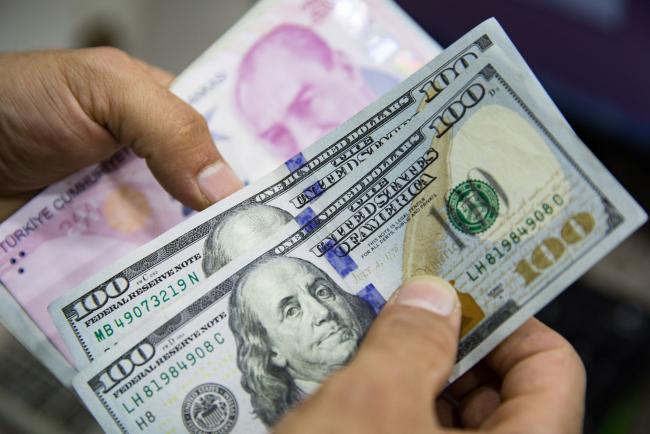Lumen Technologies hires Sean Alexander as head of Connected Ecosystems
(Bloomberg) -- Want the lowdown on European markets? In your inbox before the open, every day. Sign up here.
Turkey is limiting the amount of foreign currency local banks can swap for the lira as policy makers seek to reduce volatility in the battered currency.
The Banking Regulation and Supervision Agency, or BDDK as it’s known, will limit foreign exchange swaps, forwards and other derivatives with a maturity of seven days or less to a maximum of 10% of banks’ equity, it said late on Wednesday.
The regulator in September 2018 limited swaps on foreigners selling forex in exchange for lira at 25% of equity to prevent short selling.
“This time the regulator looks like it’s trying to prevent carry trades,” said QNB Finansbank chief economist Erkin Isik. “The regulator may also want to prevent FX outflow and encourage banks to use the swap mechanism with the central bank.”
Worst Performing
The lira reversed earlier gains and was down 0.2% against the dollar at 5.9380 at 11:25 a.m in Istanbul. The currency has lost 3.4% since the beginning of December, making it the worst-performing emerging market currency tracked by Bloomberg in the period.
The move may also encourage banks to use local market short-term funding after money market rates declined to 11%, Isik said.
The dollar/lira one-week implied yield fell as low as 7.2% from 10.4% at Wednesday’s close. That’s below the central bank’s policy rate of 12%, making it cheaper for banks to borrow in lira in exchange for their forex holdings. The dollar/lira overnight forward implied yield also sank as low as 3.4% from 10.7% at close.
Turkey’s gross forex reserves fell to $79 billion as of Dec. 6., from $96 billion two years ago, according to central bank data. The bank opened a three-month swap auction for $1 billion on Thursday to encourage local banks to bring their foreign currencies.
